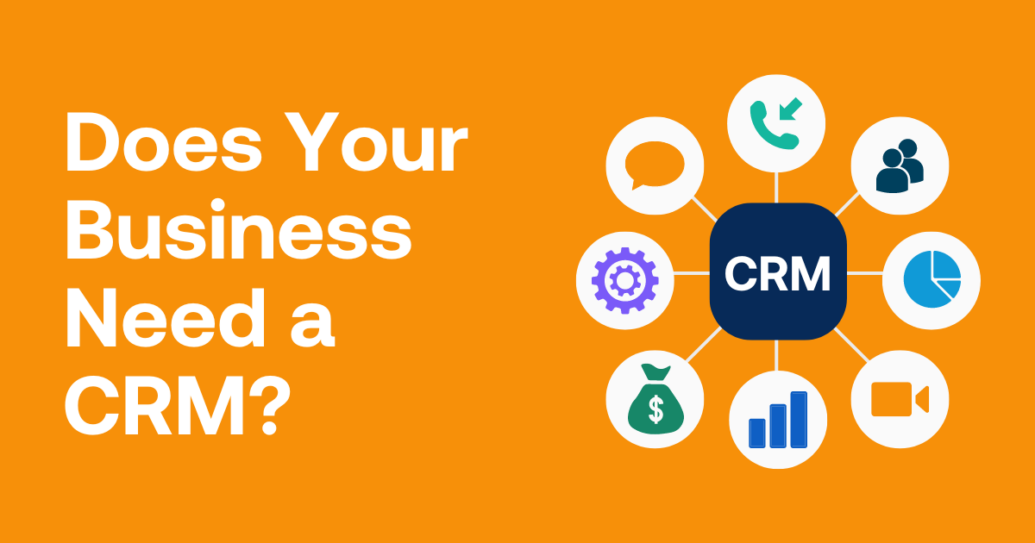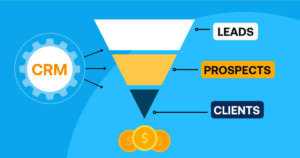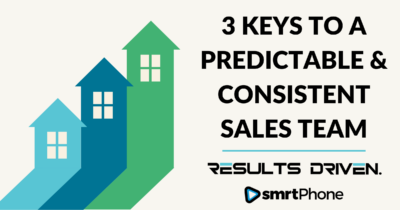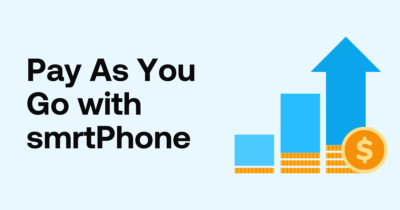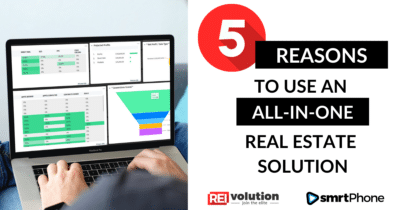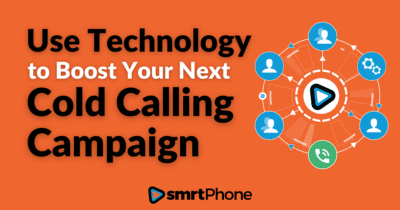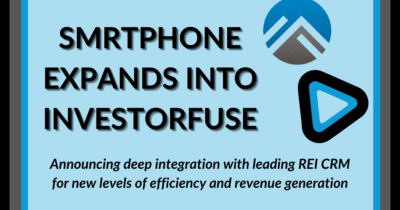Does Your Business Need a CRM?
8 reasons it’s time to graduate from disorganized spreadsheets to using a Customer Relationship Management System
A well built and well chosen CRM system should save you time and money. It’s that simple! For many entrepreneurs and small business owners, it can feel confusing to know when to start using a CRM. Before deciding which CRM you need, it’s important to first determine whether your business needs one.
As you look at pricing, set-up time and training, you start to wonder: are CRMs really necessary? The answer usually ends up being a yes, but it doesn’t have to be a complicated process going from spreadsheets and silo-ed deals to using a CRM for your sales process.
Here are some signs you’re ready to graduate to a CRM:
1. Disorganized but Doing Business
You’re great at what you do: making connections, developing relationships, and selling. Whether you sell a killer product or provide a needed service, you have customers, and you’re great at finding them. But the process from getting a lead to landing a customer can be disorganized. Maybe you’re keeping leads in your spreadsheets, phone numbers on your personal cell phone, emailing from your gmail account and relying on memory a little too much.
Disorganization gets worse when you have multiple employees, because no one really knows the full story of a lead if details are hiding in personal email or phone records. There could be duplicated efforts (the cringe of following up with a lead that your colleague talked to earlier that day), or leads completely falling through the cracks (who knew that guy you spoke to 3 months ago would finally be ready to commit this week?).
Feeling overwhelmed by data and that sinking feeling you’re missing out on deals are clear indicators your organization could be improved. This is where a CRM is a lifesaver: all your data is in one place, communication history is centralized, and tasks are automated by your own design to keep life easier.
Emails, phone calls and texts can easily be synced to your CRM, creating an all-in-one platform for your business communication. Choose a phone system that integrates with your CRM to ensure that all data is accurate, safe and organized. Your bottom line (and your employees) will thank you.
2. More Employees, More to Manage
A great sign your business is doing well is that you have to hire more employees. Whether it’s sales agents, virtual assistants, business development agents, or a CPA, you’ll want everyone to be in lockstep with each other. Not everyone will be in the same place at the same time, and a lot of collaboration ends up being virtual. A CRM becomes the central source of truth for everyone at the company.
Think about the collaboration that can happen constantly in small business:
- Marketing creates a campaign that drives inbound leads to sales
- A Virtual Assistant cold calls a lead list and hands off the best opportunities to a selling agent
- Selling agents follow-up on leads, but need to be careful of not stepping on a colleague’s toes (or sale!)
- Business Development closes a deal and the details needs to get the executive and finance team
- A CPA checks in on sales throughout the year to anticipate taxes
A great CRM makes collaboration faster, simpler, and more accurate. Never lose track of your pipeline, or the departments that need to do handoff. While shopping for a CRM, remember that not all are created equal: some will allow for granular user permissions to control who has access to important data. If you choose a CRM that integrates with smrtPhone, we make it easy to have users who can make calls and send texts that sync to your CRM, without having to be a user of your CRM.
3. Follow-Ups Are Falling Through the Cracks
Follow-ups are gold for sales-based businesses, but they’re important for many types of customer relationships, even after the sale is made. After all, they say “the fortune is in the follow-up” for a reason! A very important client may need extra care, or are ripe for
an upsell or second sale. Automating tasks and reminders help make follow-ups a breeze.
Whether via an API or built-in automations, a good CRM helps you rely less on memory and more on a well-built system. Set up reminders to follow up with cold leads after 3 months, then 6 months. Or set up an automated text sequence that changes the messaging depending o
n what stage of the sales process a lead is in. Selling agents can have automated lead lists built out depending on the last attempt, such as every call that went to voicemail, or asked for a call back later.
When you get to a certain size, just reminding yourself to call someone back stops working. Your notes app on your phone and your own memory will only get you so far if your lead volume is growing. If you feel like you’ve lost sales recently because you didn’t follow up as much as you could have, a CRM might easily be worth its price tag and then some.
4. You Don’t Know Exactly What’s Working (and What Isn’t)
Maybe your business is growing at a steady rate, but you’re not 100% sure what’s driving the success. You’d like to think that every agent, every marketing campaign, and all of your territories are winners, but that’s not realistic. You have a gut feeling of what’s working, but wouldn’t you prefer hard data to back up your assumptions?
Once you start using a CRM, clear stories start to emerge. You learn how long your sales lifecycle generally takes, which of your agents are consistent and productive, and which marketing campaigns are worth keeping. You might be surprised to learn just how much communication it takes to make a sale. Some research says an average of 8 “touches” to get an initial meeting. Once you see that communication laid out, you can grow better strategies of how, when and where you do business.
Plus, a CRM allows for insight into how well your employees are actually doing, especially when your phone system is integrated. We’ll get into reporting a little later, but the more employees you hire, it becomes more important you find ways to track their productivity. Your CRM is key in managing employees.
Find out how many calling campaigns are happening, which marketing campaigns are working, and who’s leading in sales. Accurate metrics and analytics help you form future strategy, so the sooner you get a CRM, the sooner you understand what’s working – and what isn’t.
Getting a CRM is an investment in your future strategy. As you receive data, you can expand intelligently. It’s important to choose a CRM that can grow with you, whether you grow to 10 employees or 500. Growth often also means customizable, because your needs can shift as business changes. At smrtPhone, we also believe in providing a customizable, growth-oriented product that integrates with CRMs, for the same reasons. You don’t know where you’ll be in 1, 5, or 10 years, but you should trust that your tech stack can evolve with you.
5. You Have a Lot of Data to Protect
It’s 2024, and cyber-security is a hot topic. Reports show that 83% of small and medium-sized businesses could not recover financially from a cyber attack. Solid data security and integrity is imperative if you’re a growing business. You want to keep your own information secure, as well as any that belongs to your clients and leads. If you’re using a combination of spreadsheets, emails, phone records and jotting down notes to keep track of information, your data probably isn’t safe, let alone centralized.
By having one hub of truth that you can rely on, you’re not just making your life easier, but also safer. A good CRM is well-build against cyber attacks, malware, and systems like smrtPhone allow you to enforce 2FA across your entire account.
Only invite people into your CRM that you trust, and use systems like smrtPhone to allow some individuals the ability to do business that syncs to your CRM without being in it. Your data isn’t only in danger from scammers, sometimes employees go rogue or make poor decisions with sensitive information. A good CRM can prevent downloads of data, so no one walks off with your information (or customers!).
You might be shocked by how relieved you feel once all of your information is stored in one, secure CRM. Give yourself a break!
6. You’re Wasting Time on Clerical Tasks
So much of owning a business boils down to the minutiae: have you crossed the t’s and dotted the i’s? What used to be manageable when business was smaller, clerical tasks start to pile up. Sure, you can still send your own emails, create reports from spreadsheets, and manually keep track of updates to customer info. But do you want to?
Let your CRM save you time (which also saves you money on labor):
- Task automation like emails, reminders, assigning leads, follow-up texts and more
- Design workflows specific to your sales process based on pre-set triggers
- Custom reports that allow you to track KPIs
- Automated data entry from emails, web forms, social media and more
- Find an industry-specific CRM that come with time-saving tools, such as property management CRMs with real estate data
7. You’re a Mover and a Shaker
Business does not always begin and end at a desk. You’re used to your information being at-hand, whether via spreadsheets, your computer, a notebook or your phone. But what happens when something happens while you’re on-the-go? Many CRMs now have mobile apps, and you’ll appreciate the ease of having all of your contact information and data centralized when you need to reference it somewhere remote.
Your CRM is cloud-based, so it’s wherever you are. Whether your business has you in the field, taking meetings, or you’re just someone who wants to be able to close a deal no matter where you are, a CRM becomes necessary. The best part of choosing a CRM that has an integrated dialer like smrtPhone means all your calls and texts come through without having to use your personal cell phone number.
8. You Don’t Have These Problems…. But You Will Soon
Maybe this list doesn’t resonate with you, but you’ve talked to peers and study what other successful people do, and they all appreciate using a CRM. It’s smart to be proactive in business, and if you’re doing anything to ramp up volume, whether via marketing or outreach, a CRM will be a necessity soon.
Choosing a CRM that can grow with you is key, and for many small businesses, that includes price. You don’t want to sink thousands into a custom, complicated build before you’re ready, but at the same time you don’t want to skimp and get a simple CRM that you’ll need to migrate away from at a busy time. Choose a CRM that is simple enough to be helpful while you’re small, but has the capacity to get more complex and handle larger bandwidth as you grow.
Choosing a phone system that’s pay-as-you-go and contract-free can be a great way to lower costs. You’ll only end up spending more as your volume increases, when you’re more likely to have the revenue to spend.
At smrtPhone, we integrate with best-in-class CRMs that we intentionally chose to integrate with for their thoughtful approach to customer management. Check out our integration partners while you do your research!
Real Estate Specific:
